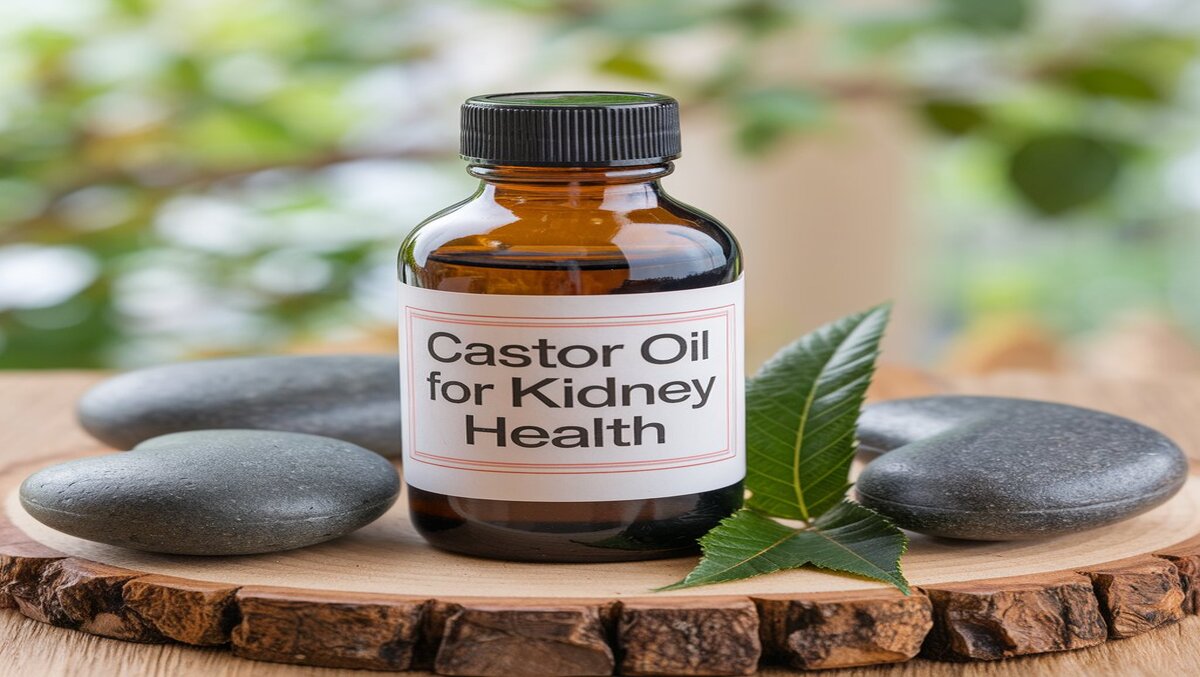Are you struggling with kidney stones and looking for a natural solution? Castor oil might just be the answer you’ve been searching for! Known for its anti-inflammatory and detoxifying properties, castor oil has been used for centuries to support kidney health. But does it really help with kidney stones? In this article, we’ll explore how castor oil ca
Are you struggling with kidney stones and looking for a natural solution? Castor oil might just be the answer you’ve been searching for! Known for its anti-inflammatory and detoxifying properties, castor oil has been used for centuries to support kidney health. But does it really help with kidney stones? In this article, we’ll explore how castor oil can benefit your kidneys, the science behind it, and whether it’s the right choice for you. Let’s dive in!
What Are Kidney Stones and How Do They Form?
Kidney stones are hard deposits made of minerals and salts that form inside your kidneys. They can cause excruciating pain when they move through your urinary tract. Common causes include dehydration, high-sodium diets, and certain medical conditions.
How Castor Oil Can Help with Kidney Stones
Castor oil is derived from the seeds of the castor plant and is packed with ricinoleic acid, a powerful compound known for its anti-inflammatory and pain-relieving properties. Here’s how it can help:
- Reduces Inflammation: Castor oil can soothe the urinary tract, reducing pain caused by kidney stones.
- Promotes Detoxification: It helps flush out toxins, potentially aiding in the breakdown of small stones.
- Improves Blood Flow: Applying castor oil packs to the abdomen can enhance circulation, supporting kidney function.
How to Use Castor Oil for Kidney Stones
Here’s a simple guide to using castor oil for kidney stone relief:
- Castor Oil Packs: Soak a cloth in castor oil, place it on your lower abdomen, and cover it with a warm towel. Leave it on for 30-60 minutes.
- Massage: Gently massage castor oil onto your lower back and abdomen to relieve pain.
- Oral Consumption: Mix 1-2 teaspoons of castor oil with warm water or tea (consult a doctor before trying this).
What Damages the Kidneys the Most?
Before diving deeper into castor oil, it’s important to know what harms your kidneys:
- Dehydration: Not drinking enough water.
- High Sodium Diets: Excess salt can lead to stone formation.
- Processed Foods: High in unhealthy fats and sugars.
- Certain Medications: Overuse of painkillers like ibuprofen.
Castor Oil vs. Coconut Oil: Which Is Better for Kidneys?
Here’s a quick comparison:
| Aspect | Castor Oil | Coconut Oil |
|---|---|---|
| Anti-Inflammatory | High (ricinoleic acid) | Moderate |
| Detoxification | Excellent | Good |
| Kidney Support | Promotes detox and reduces pain | Supports overall health |
| Best Use | Topical packs, massage, or oral | Cooking, skin care |
While both oils have benefits, castor oil is more targeted for kidney health.
When Should You Not Use Castor Oil?
Castor oil is generally safe, but there are exceptions:
- Pregnant Women: Can induce labor.
- Children: Not recommended without medical advice.
- Digestive Issues: May cause diarrhea or cramping.
- Allergies: Avoid if you’re allergic to castor plants.
5 Benefits of Castor Oil for Kidney Stones
- Reduces Pain: Soothes inflammation in the urinary tract.
- Flushes Toxins: Helps cleanse the kidneys naturally.
- Improves Circulation: Enhances blood flow to the kidneys.
- Breaks Down Small Stones: May aid in dissolving minor deposits.
- Boosts Overall Kidney Function: Supports detoxification and healing.
Call to Action: Try Castor Oil Today!
If you’re looking for a natural way to support your kidney health, castor oil is worth a try! Whether you use it as a pack, massage oil, or in small doses, it could be the relief you need. Always consult your doctor before starting any new remedy.
FAQs About Castor Oil and Kidney Stones
1. What is the fastest way to flush your kidneys?
Drinking plenty of water, lemon juice, and using natural remedies like castor oil can help flush your kidneys quickly.
2. Does castor oil draw out toxins?
Yes, castor oil is known for its detoxifying properties and can help remove toxins from the body.
3. What happens when you rub castor oil on your belly?
It can improve blood flow, reduce inflammation, and support organ function, including the kidneys.
4. Is castor oil better than coconut oil for kidneys?
For kidney health, castor oil is more effective due to its anti-inflammatory and detoxifying properties.
5. Who should not use castor oil?
Pregnant women, children, and individuals with digestive issues or allergies should avoid castor oil without medical advice.
By now, you should have a clear understanding of how castor oil for kidney stones can be a game-changer for your health. Give it a try and experience the benefits for yourself!
Medical Disclaimer
All content published on medlifeguide is intended for informational and educational purposes only and does not substitute professional medical advice, diagnosis, or treatment. Always consult a qualified healthcare provider regarding any medical condition, symptoms, or treatment decisions.

